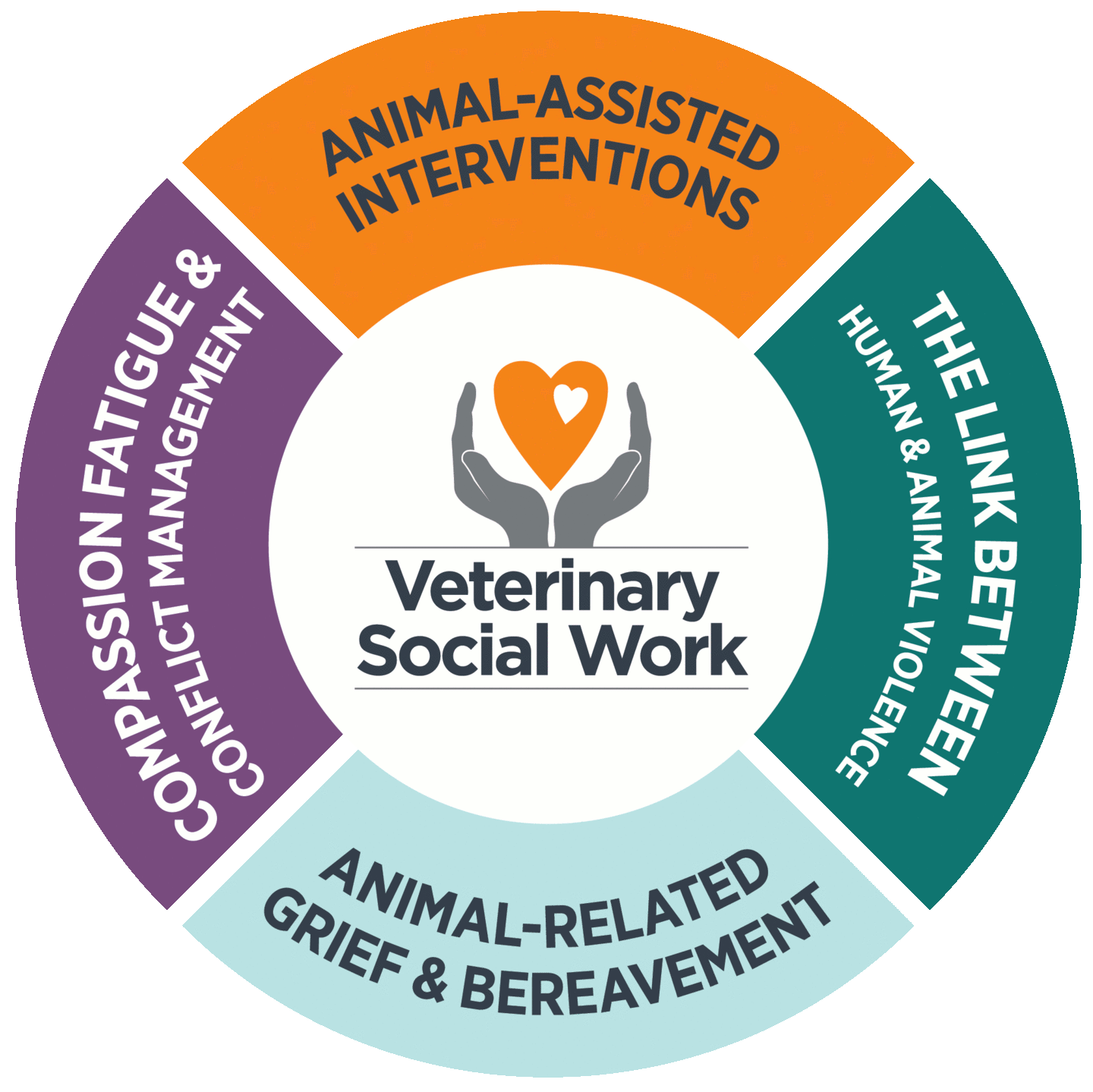These professionals attend to human needs that arise from our relationships with animals
The lives of animals and humans are so firmly intertwined that it’s little surprise to learn a new professional specialty is growing and expanding: veterinary social work.
These social workers specialize in preserving and strengthening the bonds pet parents have with animals. They can also support veterinary staff who interact with pet parents and one another in their day‑to‑day work.
Our Lives Intersect

Our pets are part of our families, so we are not surprised when our relationships get complicated. According to the University of Tennessee Knoxville, which offers a certificate in veterinary social work, the professionals examine such issues as:
- Animal‑related grief and bereavement.
- Animal‑assisted interventions.
- The link between human and animal violence.
- Compassion fatigue and conflict management.
What Does It Take to Become a Veterinary Social Worker?
Veterinary social workers understand the special bonds between humans and animals and learn specific interventions and therapies including grief and bereavement services, mindfulness‑based stress reduction, suicide awareness, and animal‑assisted therapy.
The University of Tennessee Veterinary Social Work Certificate Program (VSW‑CP) trains students in the following areas:
- Research on human‑animal interactions.
- Animal welfare issues.
- Interventions on behalf of humans, paying particular attention to underserved and marginalized populations.
- Developing and implementing animal‑related programs in existing social work agencies.
- Developing and demonstrating psycho‐educational, mediation, and team‑building skills.
Students need to take credits in a specialization, complete a field practice, and complete courses in veterinary social work and mediation.
Before graduation, they take a Veterinary Social Work Oath:
“Specializing in veterinary social work, I pledge my service to society by tending to the human needs that arise in the relationship between humans and animals. From a strengths perspective and using evidence‑based practice, I will uphold the ethical code of my profession, respect and promote the dignity and worth of all species, and diligently strive to maintain mindful balance in all of my professional endeavors.”
If you love animals and love helping people, this might be a great career option for you.
Animals and Humans Living in Poverty
Because poverty touches humans, it also affects our relationships with animals. And the COVID‑19 pandemic exacerbated problems like inequality, lack of affordable housing that accepts pets, and food insecurity for families with pets. Addressing these intersecting issues is exactly why the field of veterinary social work exists.
The sixth International Veterinary Social Work Summit, held virtually in October 2020, explored topics of COVID‑19, telehealth, animal welfare, and access to care. It was hosted by the University of Tennessee College of Veterinary Medicine and College of Social Work.
During a presentation titled “Improving Access to Vet Care,” the social workers learned:
- Pre‑pandemic, an estimated 29 million dogs and cats lived in houses receiving SNAP benefits (food stamps). This number is likely higher now.
- 80 percent of 5,600 people surveyed agreed that their pet was a member of their family.
- More pets are adopted than purchased in low‑income households.
Finding a Veterinary Social Worker
Because this is a relatively young field, it can be challenging to find a veterinary social worker near you. The University of Tennessee publishes a directory of veterinary social workers. You can find that here.
One Health Organization is considering hiring a veterinary social worker to coordinate services that vulnerable pet parents need in Northeast Ohio and to support veterinary team members, as needed. We’d love to know if you think this kind of support is something you may need in your life. Please send me an email and I’d love to consider the possibility further.
